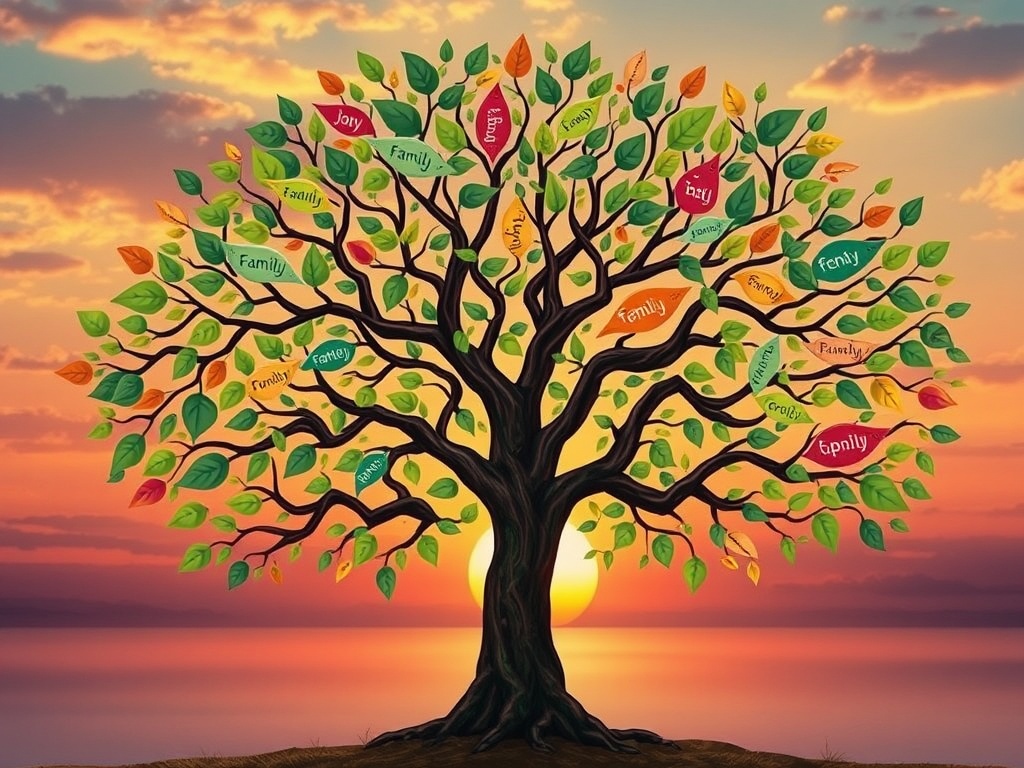Understanding Parental Envy: A Personal Journey

On the day of her wedding, Tracy Culleton recalls a poignant moment as she descended the stairs in her elegant white dress. Her mother, however, barely acknowledged her presence, offering neither a hug nor a compliment. At 26, Culleton understood the underlying reason for this coldness. “My father gave a speech after the ceremony. He expressed his gratitude to the most beautiful woman in the room—my mother,” she shares. “This was a recurring theme; everything had to revolve around her.”
Following the ceremony, Culleton took the initiative to break the ice with her mother. “I approached her and said, ‘You’re looking very well.’ She responded with a dismissive glance, as if to say, ‘Of course.’ When I asked if she was happy for me, her reply was blunt: ‘I’m just happy you’re no longer living in sin.’”
Now at the age of 60, Culleton reflects on her numerous accomplishments, including book deals and multiple publications. Yet, none of these milestones received the recognition from her mother that she longed for. For instance, when she won a prestigious national story competition in Ireland, she eagerly called her mother to share the news. “All she said was, ‘Oh good.’ After that, she didn’t even bother to tell my dad,” Culleton recalls, highlighting the emotional distance between them.
Culleton believes her mother’s behavior stemmed from a place of parental envy—jealousy towards her daughter’s successes, relationships, and youth. “Whenever I brought home boyfriends, my mother would get giddy. It wasn’t outright flirting, but she craved their attention,” she explains. The envy was sometimes overt but often more complex. “She would display my books on her coffee table for guests to see, yet she never engaged in conversations about them or showed any excitement for my achievements.”
The topic of envious parents remains largely taboo, as it feels counterintuitive. How could someone feel jealousy toward a child they brought into the world? Traditionally, a parent’s role is to nurture and celebrate their children’s accomplishments. However, as early as the 1950s, some psychologists suggested that envy among mothers was not uncommon. American psychologist Helen Deutsch posited that a mother’s protective instincts could mask deeper feelings of envy, particularly towards their teenage daughters.
Terri Apter, a social psychologist at Cambridge University and author of Difficult Mothers, acknowledges that while parental envy is rare, it does exist. “Parental envy isn’t the norm, but it’s not unheard of,” she states. Apter estimates that around 20% of parents may fall into the “difficult” category—envious, distant, controlling, ambivalent, or smothering. Among these, approximately 5% can be classified as particularly envious. When envy seeps into the parent-child relationship, it can create a toxic environment.
“Envy is characterized by recognizing something good in another person, coupled with a desire to undermine it,” Apter explains. “This creates a toxic emotional dynamic, making the envious person feel terrible while inflicting pain on the one being envied, often a child.” Children naturally expect their parents to celebrate their achievements, but an envious parent may paradoxically encourage success while simultaneously punishing their child for it. “They might downplay accomplishments with comments like, ‘You’re always boasting’ or ‘You think too highly of yourself,’” she adds.
At the very least, an envious parent’s coldness can be deeply confusing for the child. “Imagine a child coming home excited after scoring a goal or having a great day, only to be met with indifference from their parent. This can lead to feelings of shame about their own happiness,” Apter notes. Culleton experienced this shame profoundly, saying, “It took me until my forties to realize I wasn’t a horrible person. I struggled with self-esteem issues and felt there was something fundamentally wrong with me.”
Growing up, Culleton often believed she lacked talent, a notion fueled by her mother’s constant belittling. This dynamic made it difficult for her to form healthy relationships with emotionally available partners. However, everything changed when she gave birth to her son in 1995. “I found it easy to be an attentive parent, and it forced me to confront my mother’s flaws,” she reflects. “I was determined to highlight my son’s strengths, ensuring he developed a sense of self-worth that I never had.”
Unfortunately, jealousy often thrives in silence, leaving adult children unaware of the damage their parents may inflict. “Envy is often cloaked in subtlety, making it difficult for children to recognize what they are encountering,” Apter explains. It wasn’t until her mid-forties that Culleton began to see the truth of her situation. “That was when I decided to stop sharing my publishing successes with her,” she admits. Yet, the emotional damage lingered.
Parental jealousy is often associated with narcissistic personality disorder. “Narcissism is commonly misunderstood as an inflated ego,” Apter clarifies. “In psychological terms, a narcissist typically has a deflated sense of self-worth. They rely on others for validation and become enraged when someone else receives attention.” Narcissistic personality disorder affects an estimated 1 to 5 percent of the UK population, but it can be challenging for the children of narcissists to recognize and accept their situation.
“Many adult children of narcissistic parents carry a profound sense of shame instilled in them from a young age,” explains Dr. Sarah Davies, author of Raised By Narcissists. “When a child experiences neglect or envy from a parent, it feels unsafe to confront the caregiver. Children often internalize this negativity, believing they are to blame for their parent’s behavior, which leads to low self-esteem and feelings of inadequacy.”
Even parents not diagnosed with narcissistic personality disorder can experience envy, which often stems from their own unrealized dreams and disappointments. “I see this frequently in my clients,” says Davies. “It manifests as a bitterness where a parent feels resentful when their child has opportunities they never had.” This dynamic is often exacerbated by generational gaps where older parents lack the tools to process their feelings of envy or resentment.
Lily, 51, from South West England, has grappled with seeking her mother’s approval for her entire life. Although she moved to a different city eight years ago to escape the toxic relationship, she still feels bound by its psychological effects. “As a child, I was quiet and unproblematic, yet my mother would openly criticize me in front of family members,” she recalls. “I couldn’t understand it at the time, but it led to severe anxiety, often waking up in the middle of the night feeling like I was suffocating.”
In stark contrast, Lily’s brother received all the praise and attention, leaving Lily in a constant quest for validation. “My grandmother once pointed out how futile it was to keep seeking approval from my mother, saying, ‘How many times are you going to hit your head against a wall before you realize it’s a wall?’”
As Lily entered her teenage years, the situation worsened. “My mother was celebrated for her beauty, which was essentially her only asset. When people began to say I resembled her, she became resentful,” Lily says. “She would disparage the appearance of other women in the family and then assert that I looked like them instead.” She imposed strict rules on Lily, forbidding her from wearing makeup or engaging in typical teenage activities. “I didn’t understand that her behavior was abnormal until I saw how other mothers interacted with their daughters.”
As she matured, Lily excelled academically, but her mother’s jealousy only intensified. “When I got accepted into university, she expressed annoyance, insisting I wasn’t smart enough despite my good grades,” she explains. “I think she felt threatened by my independence, given that her generation often equated security with marriage.”
This mother-daughter dynamic is disturbingly common. “Generational differences often play a significant role,” Apter observes. “Parents may see their children enjoying opportunities they never had, leading to resentment.” The strain on Lily’s relationship with her mother became unbearable, resulting in her decision to cut ties eight months ago. “It’s heartbreaking for many to comprehend that a mother could behave so poorly towards her child,” she laments. “This is why many people refuse to acknowledge such experiences.”
Since their estrangement, Lily’s mother has not attempted to reach out. “My family members are upset with me for moving away, and now there’s a financial rift as well. I’ve been removed from her will, and everything has been left to my brother,” she states, revealing the deep fractures in their relationship.
Like Lily, Culleton also chose to distance herself from her mother, but she believes this isn’t the only path forward. “The relationship can never be truly normal or mutually nurturing,” she explains. “However, going no-contact isn’t the sole solution; you can manage the relationship through effective boundaries to make it bearable.” Her advice is simple yet profound: “Share nothing about your successes. Keep your achievements to yourself to prevent them from being used against you.”
Emma Davey, a BACP counselor specializing in recovery from narcissistic abuse, echoes that there is no one-size-fits-all answer. “Depending on the severity of the parent’s jealousy and its impact on your life, maintaining some distance may be wise. Share only what you choose to share, and remember: you are not to blame.”
Culleton reflects on her mother’s narcissistic tendencies with a mix of clarity and pain. Even after decades of introspection and writing a self-help book on the topic, processing her experiences remains challenging. “The insidious nature of this dynamic makes it difficult to recognize and articulate,” she states. “It’s heartbreaking because our parents are meant to be our first champions. If they fail in that role, it’s vital to remember that we are still worthy and valuable human beings.”
“I live by a personal motto,” she concludes with warmth. “We’re not broken and in need of fixing; we’re wounded and in need of healing.”




